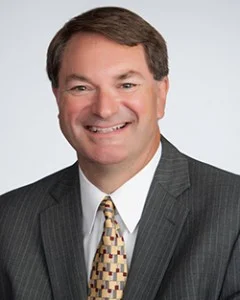Navigating Partisan Polarization
By Bob Beatty
EDITOR: We live in the state capital, where politics are a part of our daily lives. But it seems from many discussions with business owners that the risk of engaging in political conversations has increased, both in discussions about state politics as well as federal politics. For a business owner, the risk is the possible loss of a client because even a calmly stated opinion can be a deal breaker. If business owners, and business professionals, cannot speak their mind without fear of losing clients, how can they engage in the political conversation? What does the community, the state and the country need from business owners and business professionals? How do we talk about the real issues and work together when we are so divided?
BEATTY: Indeed, according to political science research, polling, and just plain observation, partisan polarization has increased dramatically in the last 20 years. And this polarization has not only impacted elections—Republicans voting only for Republicans and Democrats voting only for Democrats—but is also reflected in the way people interact. Research has shown that conservatives talk less to liberals than they used to, and vice-versa. This factor then increases the polarization, and a selfperpetuating cycle can ensue.
For business owners and business professionals, politics can become a minefield in this more partisan environment. Many may be tempted to abstain from all politics, to go with what seems like the majority opinion, or bend with the wind, agreeing with whomever you happen to be talking to at that moment. All three are not optimal. Abstaining from all politics can rob communities of talented people who can contribute expertise to solve problems. “Going along” with the majority is difficult because majority opinion can change quickly. Finally, agreeing with everyone about everything is not only fake, but also exhausting.
SO WHAT TO DO?
ACKNOWLEDGE Business owners and professionals do need to acknowledge partisan politics as a reality, that some of their clients may feel passionately about politics, and that their business may be already involved in partisan politics, albeit inadvertently. This most commonly happens when the business is a member of an association or organization that not only gets involved in political campaigns but also favors one political faction over another. And this may not be Democrat-Republican, but could be much more tribal. For example, in the recent First Congressional District in Kansas, in the Republican primary, the Kansas Chamber of Commerce favored one candidate while the U.S. Chamber of Commerce favored another. In short, every business should do an “audit” of the associations it belongs to and whether that membership puts it in a political position, and if so, whether that’s the position it wants to be in.
FOCUS Businesses and business professionals may best become involved in politics by focusing on core issues rather than partisan fights, or even elections. Believe it or not, polling has consistently shown that there are some core issues in which most Americans can agree on, and will not get angry if they see someone earnestly attempting to work toward solving one or more of those issues. I’m sure business professionals can think of many such issues, but some would include: A strong infrastructure (roads, bridges, highways), low crime rates, good schools, a sound, stable tax structure, clean air and water, honest and efficient government and police, help for our veterans, healthy children, and equal treatment for all people (clients and customers included).
In short, businesses and business professionals may be “neutral” on partisanship, but rather than a risk, it would seem a benefit for a company to be “for” one or more of the above issues. One of the reasons polarization has increased in America is because so many people view issues through a partisan lens. But businesses do not have to play that game. Businesses and business professionals can play a role that they used to play in communities 50 years ago, which is one of actively being involved in the key issues that make a city and state function and thrive. They can turn the political calculus upside down in a way that allows them to openly and freely participate. Political parties do not own our core issues; both Republicans and Democrats want good roads, safe neighborhoods, and clean water, for example, and corruption from any government entity, from police to city council, is not only bad for a political entity but also bad for business.
Every business and business professional can decide for themselves what issues they care the most about and how they want to be involved. But the key is they can be involved in many issues in a way that will endear them to their customers and clients and allow them to participate in the political process— once they realize that politics doesn’t just mean advocating for a party or supporting a candidate.
Bob Beatty is a political analyst for KSNT News and columnist for the Topeka Capital Journal.





